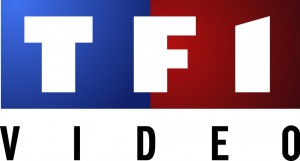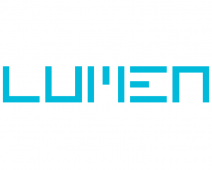What Are the Key Issues Facing the French Programmatic Market?
by on 8th Apr 2015 in News

ATS Paris is only two weeks away, where luminaries from the French market will meet to discuss some of the key challenges facing them in the year ahead. ExchangeWire peruses the agenda and highlights some of the key topics of debate, including: programmatic trading models; the dynamism of France's video space in Europe; plus what the future holds for publisher consortia.
ATS Paris takes place on 22 April, and the agenda for the event is now live, with three unique areas of opportunity and challenges to the French market addressed in some of the panel sessions.
They include: whether it is better to build, borrow or buy programmatic trading technology; plus how France is the leading European market for programmatic video; as well as how Audience Square and La Place Media are the standard bearers for the publisher consortia on the continent.
Build, borrow, or buy?
One of the standout panel sessions discusses 'The Evolving Programmatic Trading Model', and will see representatives from IPONWEB, The Trade Lab, Magnetic, and insurance firm AXA France debate the merits of the respective models.
Each of the respective models have been played out in high-profile during the last year, and the respective participants will give their assessment of the benefits/challenges facing advertisers and marketers when making this decision.
These decisions will essentially affect what programmatic trading model advertisers will choose, and it is one that faces advertisers and agencies alike.
 For instance, does a media buyer build their own technology (a model that can be explored with IPONWEB), meaning the technology they use to purchase – or bid – on digital advertising space is unique to them.
For instance, does a media buyer build their own technology (a model that can be explored with IPONWEB), meaning the technology they use to purchase – or bid – on digital advertising space is unique to them.
In an earlier interview with ExchangeWire, Nathan Woodman, IPONWEB, general manager, explained the benefits to an advertiser. He said: "The advantages to using this is in terms of what you can exhibit and control – like algorithms, decisioning logic, protection of the data and directing the system to reduce the cost of media, but this also requires a longer lead-time … which the client pays for."
The alternative, of course, is to effectively 'borrow' – or license – programmatic media buying technology, an option that presents advertisers with an off-the-shelf solution that lets a company either cherry-pick, or take a full-stack offering.
The former option lets advertisers pick the best in class from each offering (for instance an advertiser, or agency, can use Turn for display ad buying, Google's DBM for video, and MediaMath for mobile), but of course a main issue – as raised by IPONWEB's Woodman – is all this costs money.
This was a point raised by AOL 12 months ago when it launched its One Platform, claiming that using its full ad stack will help help ease the "technology tax" incurred by advertisers that opt for multiple programmatic technologies.
Bob Lord, AOL, president, sums up his company's assessment of the situation: "Our industry has developed too many niche offerings and specialised services over the last 25 years, and chaos in ad tech is at an all-time high.
“The inefficiencies, ineffectiveness and expense of managing multiple teams, tools and metrics for display, mobile and video, across all devices, are stifling.”
Meanwhile, a third option on offer to companies is to buy out an ad tech firm lock, stock and barrel; an option chosen by Tesco's Dunnhumby, when it paid a reputed $200m for social data firm Sociomantic. Such a purchase can allow advertisers – most prominently retailers – to roll out an automated media-buying arm, a policy decision taken by Walmart's UK arm Asda in recent weeks.
How France's video marketplace is leading the way in Europe
 Meanwhile, a separate panel discussion will see representatives from TF1 Publicité, Vivaki, and Mars discuss: 'Can OCR Bring TV Money at Scale to Digital?'. Traditionally, the UK market is seen as the most sophisticated programmatic advertising market in Europe, with France – as one of the continent's other leading economic lights usually seen as the next in line (Germany, Europe's powerhouse economy, is a notable laggard in the uptake of programmatic advertising).
Meanwhile, a separate panel discussion will see representatives from TF1 Publicité, Vivaki, and Mars discuss: 'Can OCR Bring TV Money at Scale to Digital?'. Traditionally, the UK market is seen as the most sophisticated programmatic advertising market in Europe, with France – as one of the continent's other leading economic lights usually seen as the next in line (Germany, Europe's powerhouse economy, is a notable laggard in the uptake of programmatic advertising).
However, it is in the programmatic video advertising space where France is the leading light in Europe – a circumstance born out of the lack of diversity in the UK broadcaster space.
For instance, the UK market is controlled by relatively few publishers that have video-on-demand (VOD) advertising inventory at scale – think ITV, Channel 4, Sky, and (at a push) Channel 5 – other sources of VOD inventory are available, but not at the scale of the aforementioned broadcasters. The main reason for this is the presence of the omnipresent national broadcaster the BBC, which doesn't offer advertising inventory domestically.
Compare this to the French market where (although France Télévisions is a national broadcaster) competition among the broadcasters for programmatic ad spend is more rife, meaning the market there is one of the most developed in the region.
Will the adoption of Nielsen OCR data – the long-held metric used to assess the effectiveness of TV advertising – help draw some of the lucrative advertising budgets from TV there, and increase France's position as the foremast market for programmatic video?
Where do French publishers go next in programmatic?
France is also a notable programmatic media-buying market for publishers there, pioneering the publisher co-op model, with Audience Square and La Place Media pioneering the model, a dynamic ExchangeWire explored at length just last week, but the questions now stands: what's next for the the publisher ecosystem?
Panelists from La Place Media, Adomik, comScore, and Yahoo will debate whether advertisers' growing demand for private marketplaces (PMPs), which give them more direct access to premium inventory, as opposed to the exchange-based trading of the co-op, as well as the prospect of an independent holistic yield management technology (i.e. one that is not Google) mean for publishers?
 For instance, will French co-ops become more sophisticated in their approach? Will they become test-beds for new technologies and ad formats, whereby the shareholders equally co-fund research and development?
For instance, will French co-ops become more sophisticated in their approach? Will they become test-beds for new technologies and ad formats, whereby the shareholders equally co-fund research and development?
Panelist Fabien Magalon, La Place Media, managing director (pictured right), says: "Future evolutions being discussed involve multiple options. Common to all is the willingness to take advantage of the unique assets around scale that a premium publisher alliance provides to its partners."
ATS Paris takes place on 22 April, tickets are still available, but selling out fast, click here to avoid disappointment.
Ad ServerAd TechAdvertiserAgencyATSAutomated GuaranteedCreativeDigital MarketingDisplayEMEAExchangeMeasurementMedia SpendPMPProgrammaticPublisherSSPTargetingTechnologyTradingTrading DeskTVVideo







Follow ExchangeWire